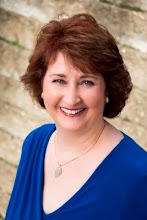Google is the world’s
most popular search engine. Want to know when the next snowfall will arrive in
Calgary? What about the spread of the coronavirus epidemic? How about a recipe
for apple pie? These are just three of the about five billion daily searches on
Google, accounting for an astounding 90.5% of all searches on the internet.
The question arises as to
how to make sense of these searches. Are some items searched more often than
others? Are some searched seasonally? Can searches be categorized—for example,
relating to book purchases?
These questions have more
than a curiosity appeal, given that Google’s ad revenue amounted to $135
billion in 2019. There is big money to spend, and to make, with Google. Having
the ability to use Google in marketing and promotion affects every business
with an on-line presence, and even for purposes other than sales.
For example, a blogger
may want to know what the hottest trends are in fashion. An epidemiologist may
want to investigate the country with the most searches per capita of a virus. A
marketer would like to know if the band he’s promoting is trending in a
particular province.
Fortunately, for the
common man or woman, there is a tool to help search searches. Google Trends was
launched in 2006, but only became the robust tool that it is today in 2012.
To use Google Trends, one
needs to enter the following website: trends.google.com. On the website, there
is an “Explore” bar, where one can put in the search terms. For example, I
chose the United States as my geographic region, entered “Apple Pie,” and
several sections showed up. One, “Interest over Time” revealed a large spike in
the search for this term in the last week of November which, being Thanksgiving
in America, makes sense. The next section showed that Pennsylvania, for some
reason, evinced the greatest interest for “Apple Pie.” Google Trends also allow
you to compare searches: I compared ‘Apple Pie recipe’ with ‘Cherry pie recipe.’
The winner: Cherry pie, by a mile!
More
powerfully, it also allows searches by categories, such as Books, Games,
Education, and so on. What about the hottest
trends? Google Trends has a section that lists the top twenty of searches, by
day, of all topics. On another page, called ‘Real Time Trends,’ shows the
number of searches in real time, per hour, in a graph of the top searches.
A very simple use of Google
Trends would be in Search Engine Optimization: the use of terms that would
generate the greatest interest in a blog, a website or a product description. But
Google Trends has turned out to be a lot more subtle and revealing than many expected.
For example, the search ‘is my son gifted?’ was shown to be more popular then ‘is
my daughter gifted?’ Similarly, the search ‘Is my daughter overweight?’ turned
up more times than ‘Is my son overweight?’ Searches like these show cultural
attitudes in statistically significant ways.
It takes times to become
a competent user of Google Trends. Fortunately, over forty free lessons are
available on the website itself. For authors, bloggers, businesspersons, or for
anyone who is interested in public trends, it is a wonderful tool!
Mohan Ashtakala is the author of "The Yoga Zapper," a fantasy, and "Karma Nation," a literary romance. www.mohanashtakala.com
He is published by Books We Love (www.bookswelove.com)































 Martin
Parker is a very happily married man, so when his first love, Diane
Branden, blows back into town – still a force to be reckoned with – he
is not prepared for the fallout. Drawn unwittingly into her carefully
spun web, upheaval quickly follows as his world immediately begins to
skid sideways.
Martin
Parker is a very happily married man, so when his first love, Diane
Branden, blows back into town – still a force to be reckoned with – he
is not prepared for the fallout. Drawn unwittingly into her carefully
spun web, upheaval quickly follows as his world immediately begins to
skid sideways.




.jpg)


.jpg)



